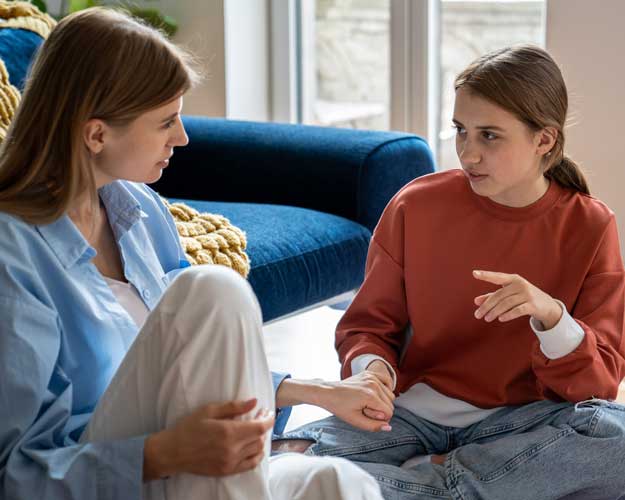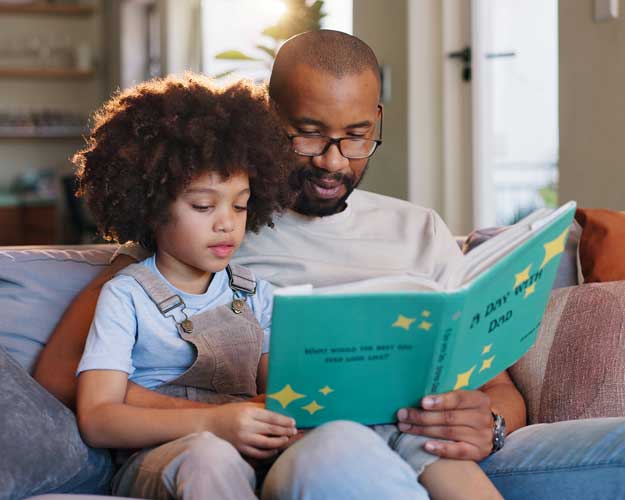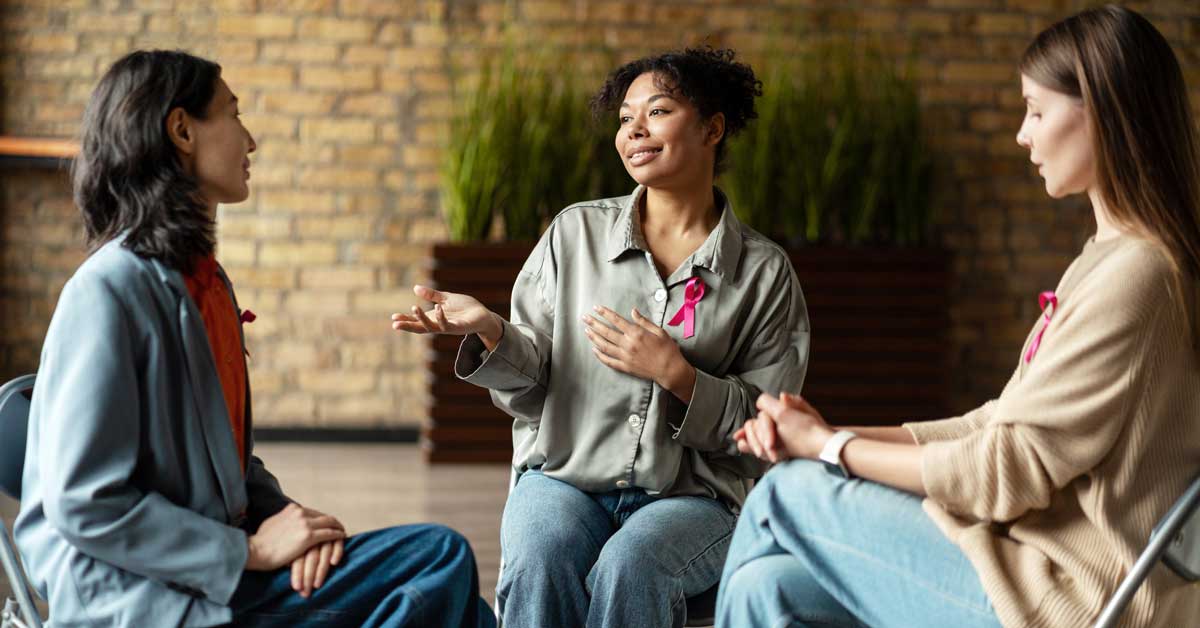How to talking with kids about a cancer diagnosis
Getting a cancer diagnosis is stressful. Add to that talking with your children about what it means to have cancer and it can be overwhelming. It is important that the information shared with kids is accurate and within their level of understanding. If kids are not given the appropriate information, they will often come up with ideas of their own and can feel left out or lied to.
Most parents want to shield their children as much as possible from the hurt of the world and “grown up” problems. They don’t want their kids lives to be disrupted any more than necessary but doctor visits, tests, and treatment. Sometimes parents feel ill equipped to answer the questions they may get when talking about cancer with their kids.

Why we should talk with our kids about cancer:
- It builds trust between the parent/grandparent and child and reduces the stress of the unknown.
- They have a right to know what is happening in the lives of their family members. They are, after all, part of the family.
- It helps them to feel like they are participating in the journey.
- It gives them the opportunity to understand why things are changing.
- It helps to prepare them for the future.
- It gives you the opportunity to make sure they get correct information.
- It prepares them for possible bereavement should the family member not recover.
What happens when we talk to our kids about the diagnosis?
Most of us know that kids are often smarter than we think, and they can figure things out. They will often know something is wrong before we even tell them. Studies have indicated that the anxiety levels in children are lower when they are told what is happening. Older children (teenagers) feel very strongly towards their parents being honest about what is happening and will want to be included. Sometimes your child may want to talk with your doctor and have their own questions about the diagnosis and what mom/dad/grandparent will go through.
If we keep the diagnosis from our kids, they may start having issues with behavior and psychological difficulties. They may experience anxiety, guilt, depression, and feelings of helplessness. You may see changes in their performance at school, their grades may suffer, and they may have trouble with relationships other than within their home.
It is important that you consider how to talk to your children about a cancer diagnosis. It’s a conversation that should be planned and thought through prior to having it.
Have questions?
Talk to a therapist at FCS
There are several things to consider when planning to talk with your children about a cancer diagnosis:
- How does your child’s personality affect what response they will have?
- What is your child’s age and maturity level?
- What role, if any, will be the child have?
- When and where should the discussion take place?
- How does your child process information?
- Does the conversation need to include the whole family, or should it be one-on-one with your child?
- Does your child know anyone who has had cancer in the past?
- What do they already know about cancer?
When you have decided the best time to have this conversation with your children focus on the 5 C’s
- Cancer – use the term, your child needs to know what the disease is.
- Cause – it is not something that you caused by anything that you have done.
- Catch – you cannot catch it from mom/dad/grandma.
- Control – you cannot control the outcome of what will happen.
- Can – you can still be a kid; we will still do things as a family, and you will still be able to spend time with your friends.
Some things to remember about these conversations to help you with communication:
- It’s ok to talk about cancer and treatment before you start and while it’s happening.
- Be open and honest with your child about what is going to happen.
- Keep the routines your family is used to; it’s import for your child to have as close to their normal routine as possible.
- Allow your child to ask questions during the conversation and to continue to ask as you move through treatment. Make sure they know that asking questions will not upset you.
- Assure them they are loved and show them your emotions.






Comments